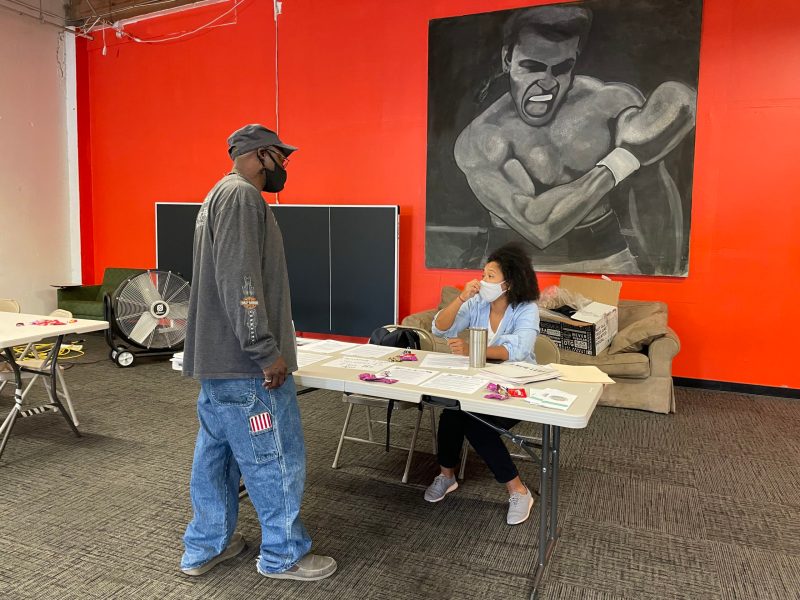In Santa Clara County, Black and Latinx residents are disproportionately prosecuted for felonies and misdemeanors. Many residents of East Palo Alto, which has historically been segregated due to discriminatory housing practices dating back to the 1960s, say they feel they are the target of overzealous enforcement for petty infractions.
Fiani Johnson, a community organizer who also works at the Oakland-based nonprofit Building Opportunities for Self-Sufficiency, held a combined brake light clinic and expungement workshop on Sept. 25 with the aim of minimizing interactions between community members and police. Expungement refers to the process of removing criminal convictions from a person’s record.
Virtually everyone at the free event, including workers and attendees, had a criminal record or knew someone who did.
Johnson said she was motivated by her experiences as someone who was formerly incarcerated. She often saw people in her community get pulled over for minor reasons, in incidents that could quickly escalate to aggressive police response or arrest.
Matthew Jones, a workshop attendee who has lived in East Palo Alto for almost 20 years, said he had been pulled over for a broken tail light “too many times. And out of those too many times, I went to jail most of the time, for something else” — a preexisting charge or warrant that then became the cause for his arrest. He said an expungement would help him get business loans and be more involved with his children’s school.
Danielle Jones, who directs the Stanford Community Law Clinic’s expungement practice, estimates that over 90% of those who contact the clinic interested in getting their records expunged hope that expungement would help them get a job or obtain a professional license. Expunging records also helps her clients feel psychologically liberated, Jones added.
Katrina Logan, the interim director of Community Legal Services in East Palo Alto, described the challenges of obtaining an expungement. On top of remaining felony-free for seven years and obtaining character letters, people have to know specific details like the date they were convicted, the criminal code, whether it was a misdemeanor or a felony and whether they had successfully completed probation.
Lawrence Williams, a workshop attendee, said he had trouble obtaining expungement because the process varied so much by county. Since last year, he has been on a waiting list for obtaining an expungement in Santa Clara County and has yet to receive assistance from any governmental or nonprofit entities.
But he’s continuing with the process because he has a different mentality from his criminal days.
“I’m an ex-convict and I once used to make mistakes in my life, and now I have rehabilitated myself,” he said. “I changed my mentality, changed my thought process.”
He wanted to expunge his record “for the sake of that I don’t live that life no more, jobs, for my son, for myself. And it’s just the right thing to do. It’s just rewarding. It’s an honor to be on civilized side.”
The event was sparsely attended — about five people trickled in from 11 a.m. to 3 p.m. to inquire about expungements, while no one asked about the brake lights — but Johnson still seemed hopeful. She described it as a challenge to reach out to other community-based organizations.
“We’ll keep planning events, keep scheduling future events until the community knows who I am,” she said.
